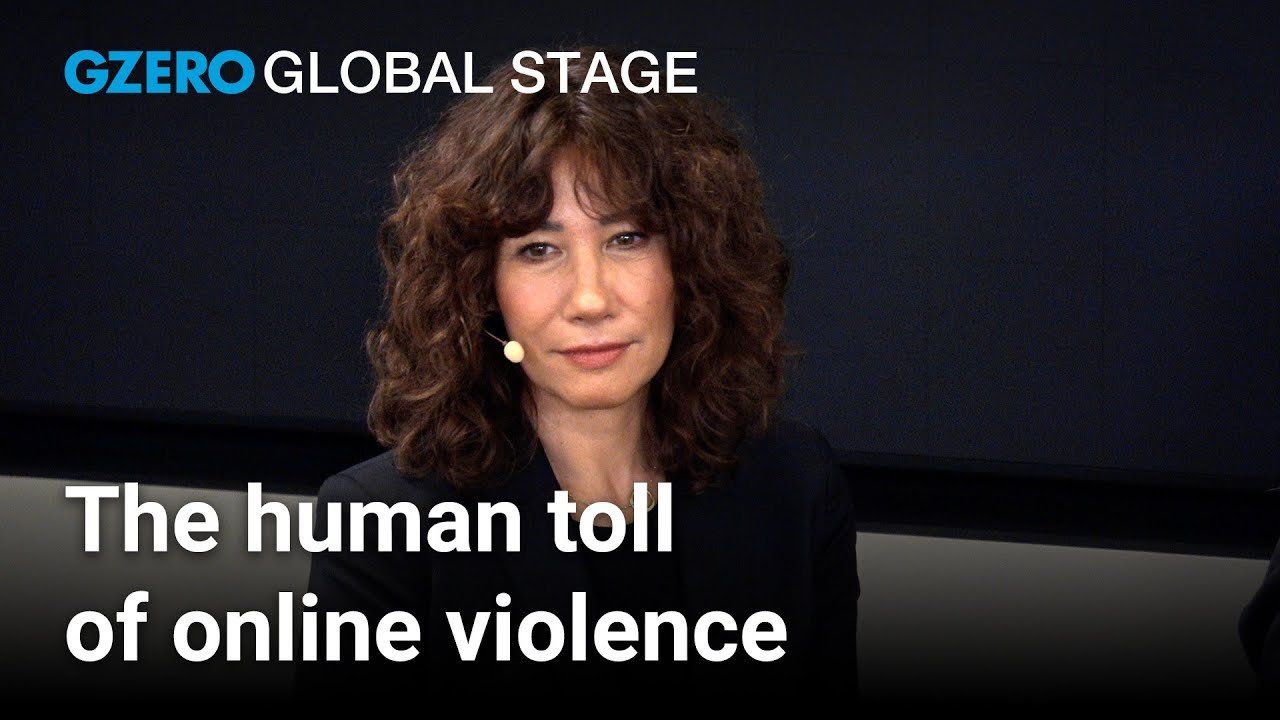Online violence means real-world danger for women in politics like EU's Lucia Nicholsonová

Content Warning: This clip contains sensitive language.
In a compelling dialogue from a GZERO Global Stage discussion on gender equality in the age of AI, Lucia Nicholsonová, former Slovak National Assembly vice president and current member of European Parliament for Slovakia, recounts her harrowing personal experiences with disinformation campaigns and gendered hate speech online.
Ms. Nicholsonová read example messages she receives online, such as, "Damn you and your whole family. I wish you all die of cancer."
She also has faced false accusations of past criminal activity through deliberate online misinformation campaigns, which she says led to endured public humiliation and threats, even experiencing strangers spitting on her in the streets. These attacks were fueled by misogyny and prejudice and took a toll on her mental well-being and family life.
As Ms. Nicholsonová recalls, “It was a real trauma because I mean, at some point I wasn't able to go out of my home because I felt so threatened.”
The conversation was presented by GZERO in partnership with Microsoft and the UN Foundation. The Global Stage series convene heads of state, business leaders, technology experts from around the world for critical debate about the geopolitical and technology trends shaping our world.
Watch the full conversation here: What impact will AI have on gender equality?
- Atwood and Musk agree on Online Harms Act ›
- Facebook allows "lies laced with anger and hate" to spread faster than facts, says journalist Maria Ressa ›
- Facebook allows "lies laced with anger and hate" to spread faster than facts, says journalist Maria Ressa ›
- AI and Canada's proposed Online Harms Act ›
- What impact will AI have on gender equality? - GZERO Media ›